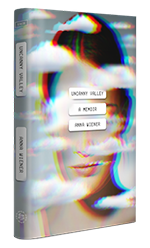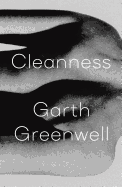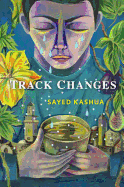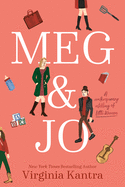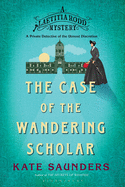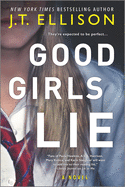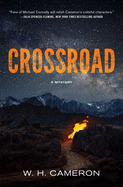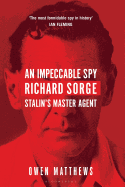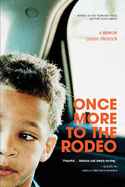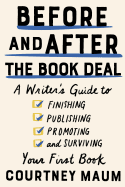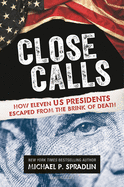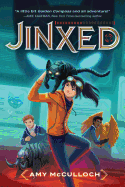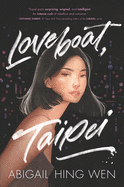 |
| (photo: Russell Perkins) |
Anna Wiener writes about Silicon Valley and tech culture for the New Yorker. Her debut, Uncanny Valley: A Memoir (MCD/Farrar, Straus and Giroux), explores her experiences moving from the publishing industry to the tech industry, and reflects on the near-surreal pace--and consequences--of rapid innovation and the fetishization of "progress." Wiener lives in San Francisco.
This is an extremely funny book. Yet, the humor invites readers to consider that what goes on in the tech industry often isn't funny at all. How did you approach that?
Thank you! I'm so glad you thought the book was funny, and not purely horrifying. There's so much about Silicon Valley that is fundamentally humorous, and it has to be humorous because otherwise it's too grim. The way people speak to each other; corporate feudalism; the hubris; the pervasive, frantic branding. I willingly participated in an adult scavenger hunt with my coworkers. That's bleak. (Should people be paid overtime for after-hours team-building exercises? Probably.) So I can't really take credit. In most cases, I was just documenting.
Rebecca Solnit--author of Men Explain Things to Me--deemed you "Joan Didion at a start up."
How incredibly generous of her, no? I'm a longtime admirer of Rebecca Solnit's writing, including her essays about San Francisco during the current tech boom, and a longtime admirer of Didion's, so the comparison means a lot to me, though I don't think it's deserved. It also makes me wonder if Joan Didion has ever been in a startup office. Imagine Joan Didion in a WeWork. Joan Didion within 10 yards of a RipStik. She would never. The thought makes me want to die.
Readers will notice early on your decision not to "name names," though we can likely deduce which company's app you used to rent a room in someone's home, or which pink-mustachioed rideshare you used to commute. What led to that decision?
I wanted to avoid naming companies, services and executives to shy away from cultural associations, and to do my best to keep the book from feeling dated. I also like generics. They're playful and ambiguous. In many ways, the actual companies I worked for don't really matter: on the cultural level, they could have been any number of startups from this period, just as a lot of the executives--specifically with respect to behavior--could have been any number of Silicon Valley executives. My hope is that stripping companies down to their functions will raise questions about the extent to which we actually need these services. (The way I thought about it was basically, How might I explain this to someone in 40 years? There is no way to explain Groupon to someone in the future without sounding completely frivolous, ridiculous.)
You do, however, name numbers--even sharing how much you made exercising your stock options.
Concrete numbers are helpful, I think (I hope!) in animating incentives and stakes. There's also a lot of information out there about what programmers make--the median salary at Facebook is $240,000, etc., etc.--but there's less information about salaries for nontechnical, entry-level employees, and I suspect there's more variation, especially at startups. In general, I think there should be more transparency around compensation, especially in industries like tech where the pay gap can be dramatic. There also needs to be more talk about equity. For people who work at private, venture-backed companies, whether or not you have equity can be the difference between maintaining a nice 401K and building generational wealth. A lot of people don't know the right questions to ask, especially starting out, and companies will take advantage of that.
One very relatable thing you write about is struggling with the urge to please those around you. How did you navigate that as you relayed stories that might not please those who recognize themselves in the book?
A question right at the beating heart of the Venn diagram of "writing memoir" and "being a woman!" Both, for me, are ongoing crises. In this case, I'm not particularly interested in pleasing people simply on the basis of their structural position. The unnamed founders, executives and venture capitalists in the book are people with power and influence. If I were to withhold criticism, whom would that protect, and what systems would it reinforce? (The people who are named in the book--friends, coworkers--did have a chance to read their sections, and we worked together to make changes to anything they felt wasn't quite right.)
Uncanny Valley offers something like a time capsule of the San Francisco Bay Area, not just in tech but in terms of the humanitarian crises the industry engenders. How has the city changed in your time there? How has what you notice about it changed?
When I moved here, in early 2013, I knew I had missed something, but I thought the change was over. I didn't realize I was actually catching the beginning of a transition. We're still in it. I don't know how, or when, this ends. The biggest issue right now is probably housing. It has become very, very expensive to live in San Francisco, and this wasn't a cheap city to begin with. The homeless population has risen by 30% in the past two years. A lot of people are struggling. At the same time, there's all this money sloshing around. All these new, ridiculous restaurants. Empty storefronts. Airbnbs. A surplus of Lyft and Uber drivers, some of whom travel from Sacramento or Los Angeles, many of whom spend a good part of the day idling. All these Victorian houses being flipped, after--the indignity--getting painted gray.
It's no longer a destination for artists or musicians or writers, and you can see the culture shifting. It's complicated: there are a lot of factors contributing to the housing crisis (and attendant issues), and tech is just one of them--but tech is an accelerant of sorts. San Francisco is a small city. The tech industry is oriented toward growth and speed. As a result, it's like a swift, blunt force.
At one company, in the face of rampant sexism, you stopped writing publicly under your own name. Did you consider writing this book Jane Austen-style, or whistleblower style, anonymously? "By a Lady in Tech," say?
I didn't. I did consider writing it as fiction, but I didn't want the book to be mistaken for satire.
What's next for you? Have you picked up the bass yet?
Bass remains the white whale; what is wrong with me?? I've been enjoying writing dispatches from Silicon Valley for the New Yorker website--I'm excited to do more of those. I'd like to write fiction again, just to switch gears for a minute and see if I can do it. I'll probably have at least a few nights of regretting that I don't know JavaScript. I still worry, every day, about marketable skills. --Katie Weed
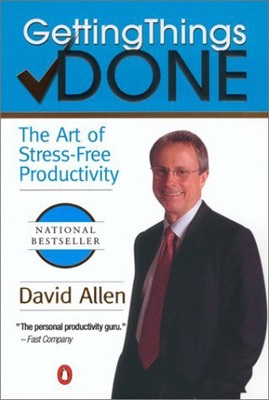 That's a technique David Allen discusses in Getting Things Done (Penguin, $18), which I learned about when Cory Doctorow cited it as a book that changed his life. Allen advocates looking at what you want from a 50,000-foot vertical perspective, and then thinking about whether the things you're doing "on the runway"--horizontally--contribute to that wish. In other words, don't get so mired in the daily tasks that you leave out the "why" of the task in which you are engaged.
That's a technique David Allen discusses in Getting Things Done (Penguin, $18), which I learned about when Cory Doctorow cited it as a book that changed his life. Allen advocates looking at what you want from a 50,000-foot vertical perspective, and then thinking about whether the things you're doing "on the runway"--horizontally--contribute to that wish. In other words, don't get so mired in the daily tasks that you leave out the "why" of the task in which you are engaged.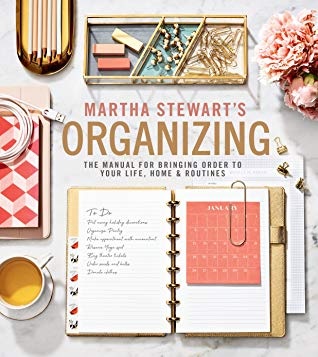 That is the strategy in Martha Stewart's Organizing (Houghton Mifflin Harcourt, $30), too. She begins with a monthly calendar and a couple of breathtaking photographic spreads for each, with big ideas and seasonal connections. Then she delves more deeply into strategies with sections like "Organize Your Home," tackling it space by space (e.g., kitchen, office, bedroom). Whether you live in an apartment or three-bedroom house, ideas abound for DIY cleaning solutions or reasonably priced shelving, tables and wire tamers. Each suggestion contributes to the aerial view.
That is the strategy in Martha Stewart's Organizing (Houghton Mifflin Harcourt, $30), too. She begins with a monthly calendar and a couple of breathtaking photographic spreads for each, with big ideas and seasonal connections. Then she delves more deeply into strategies with sections like "Organize Your Home," tackling it space by space (e.g., kitchen, office, bedroom). Whether you live in an apartment or three-bedroom house, ideas abound for DIY cleaning solutions or reasonably priced shelving, tables and wire tamers. Each suggestion contributes to the aerial view.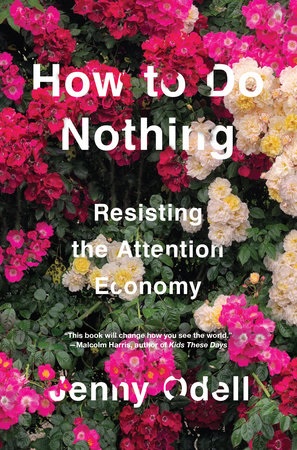 I have been rereading How to Do Nothing by Jenny Odell (Melville House, $25.99). Her ideas would seem to be at odds with Martha Stewart. But they're not. Both authors emphasize stepping back, looking at what you're doing through a larger lens. Odell emphasizes starting where you are, getting to know the history of where you live, and checking in with yourself so that you find meaning in each small act as it contributes to how you wish to live your life.
I have been rereading How to Do Nothing by Jenny Odell (Melville House, $25.99). Her ideas would seem to be at odds with Martha Stewart. But they're not. Both authors emphasize stepping back, looking at what you're doing through a larger lens. Odell emphasizes starting where you are, getting to know the history of where you live, and checking in with yourself so that you find meaning in each small act as it contributes to how you wish to live your life.


